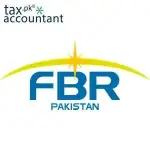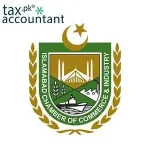Receiving the Notice:
It can be scary to get a penalty notice from the Federal Board of Revenue (FBR) in the mail or in your IRIS account. It’s very important to know what a notice under Section 182(2) of the Income Tax Ordinance, 2001 means and how to properly respond to it. If you ignore it, it could lead to worse results, like higher fines and legal action.
Part 182 of the Income Tax Ordinance, 2001 is what?
The Income Tax Ordinance, 2001, has a section 182 that talks about crimes and punishments. This is a long section that lists different mistakes taxpayers make and the penalties that come with them. The FBR uses this section to punish people who don’t follow the rules for a variety of reasons, such as
- Not filing an income tax return or other required statements by the due date. * Not giving the FBR information or documents as asked, for example during a Section 177 audit.
(1) Not applying to be registered under the Ordinance. (2) Not telling the registrar about changes to the information they have on file.
What Notice U/S 182(2) Means
A “show-cause notice” is what you get when you get a notice under Section 182(2). It’s not the final penalty order. The tax authorities are sending you this official message to give you a chance to explain your situation before a final penalty is put in place. Most of the time, it will say:
*The specific violation or default you are being charged with (for example, not giving the documents asked for in a previous notice).
*The part of the law that applies to the penalty being thought about.
- The amount of the proposed fine.
- A due date to respond and/or show up for a hearing.
This notice gives you a chance to make your case, explain the alleged default, and send in any information that is missing.
How to Handle a Notice Under Section 182
It can be stressful to get this notice, but the best way to move forward is to stay calm and follow a plan. Here are the steps you need to take to deal with it:
- Don’t freak out, but act quickly
The very first and most important thing to do is to acknowledge the notice and the due date. You will be given a date on the notice by which you must either respond or show up for a hearing. If you miss this deadline, the FBR will probably punish you without hearing your side of the story. - Read the notice carefully and make sure you understand it.
Read the notice all the way through. Find the following important details:
The specific crime or rule violation that was mentioned.
The date of the notice and the due date for compliance.
- The name and contact information of the FBR officer who sent the notice. A list of any other notices or references that were mentioned in the document.
- Get all the important papers together.
Get all the documents and records you need based on the alleged crime. For instance, if the notice is for not giving documents during an audit, get all the information that was asked for. If you filed your tax return late, you should have proof of that and any correspondence with the FBR. - Make sure your answer is thorough and professional.
Your answer should be in writing and should directly address the issues raised in the notice. The answer should be: Clear and Concise: Give the facts of your case without going into too much detail; Well-supported: Include all relevant documents as proof; Respectful: Keep a professional tone; Directly Address the Allegations: If the notice says you didn’t send in a document, you should explain why and send it now. If there was a good reason for the delay, you should be able to clearly explain it and show proof (like a medical certificate or technical problems with the FBR portal). - You might want to get professional help.
It can be hard to deal with tax notices, especially ones that include penalties. It can be helpful to have a tax consultant, lawyer, or accountant who specialises in FBR issues. They can help you:
- Know the legal nuances of the notice and the relevant parts of the law. Write a thorough and legally sound response. Speak for you at the hearing if needed.
- If your case is strong, try to get the penalty lowered or even the notice taken away.
- Send in your answer and follow up
Send your written response and any supporting documents to the FBR by the due date. It is very important to keep track of your submission. This could be a confirmation from the FBR office or a copy of the notice that has been stamped with the date.
Moving Forward
It’s not the end of the world to get a notice under Section 182(2). This is a necessary step in the process that gives you a chance to be heard. You can handle the situation well and work towards a good resolution if you act quickly, read the notice carefully, gather your evidence, and talk to a professional.
Don’t forget that the FBR’s job is to make sure that taxes are paid. Your prompt and well-thought-out response shows that you are willing to follow through, which can have a big effect on the outcome. Get a clear plan together right away to deal with a penalty notice instead of letting it grow into a bigger problem.








